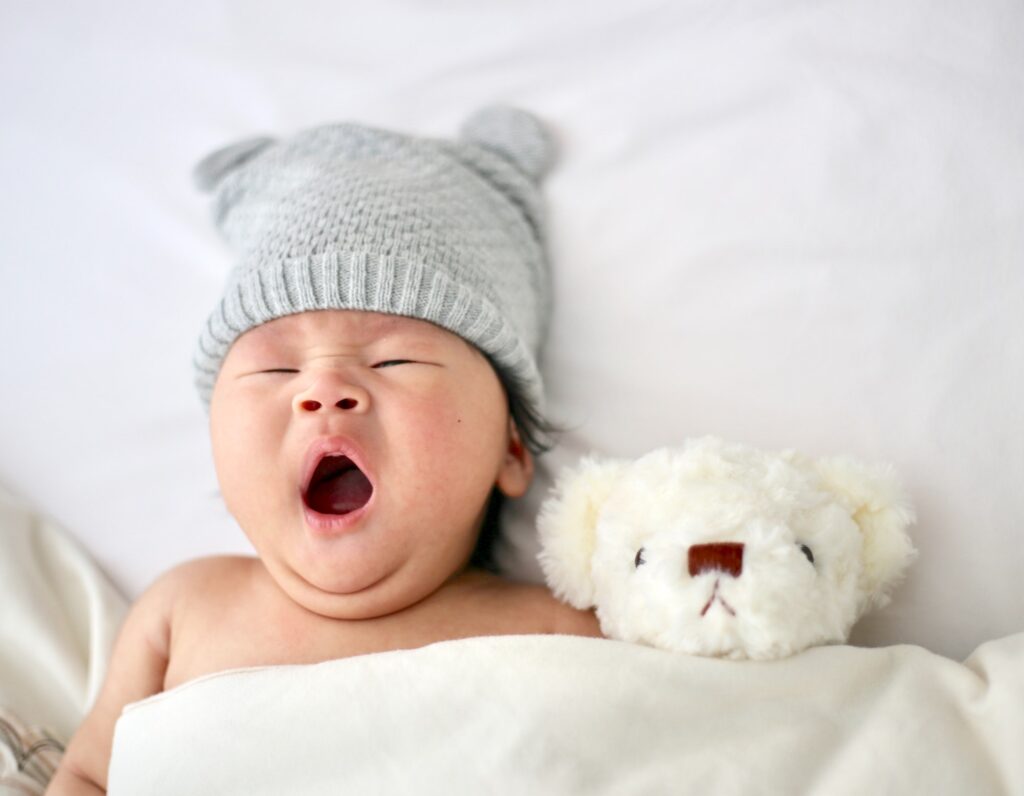
Kids’ sleep patterns vary from child to child. But as parents, especially if you’re new parents, you may raise the question — is my child sleeping enough?
We’ve all heard the rules: everyone needs eight to 10 hours of quality sleep. But how does that change when kids are involved? And what are the consequences of a bad night’s rest for our youngest family members? We break down the ideal amount of sleep children need at different stages, according to the American Academy of Sleep Medicine (AASM) — again, this is a general target and the actual hours may vary from child to child due to temperament and developmental differences.
Read More: Toddler Sleep Challenges: How To Get A Good Night’s Rest
What Happens To Our Bodies When We Sleep?
When we’re catching up on the winks, our bodies aren’t slacking; they’re refuelling and reloading for tomorrow’s slog. Your brain is wide awake the entire time you’re asleep, busy rewiring the cells, re-enforcing and re-cementing what you’ve learnt, and re-polishing your recalling and reasoning abilities, amongst others. While all this heavy-duty work is happening, your heart and other organs are getting some much-needed rest, preparing for the next day ahead.
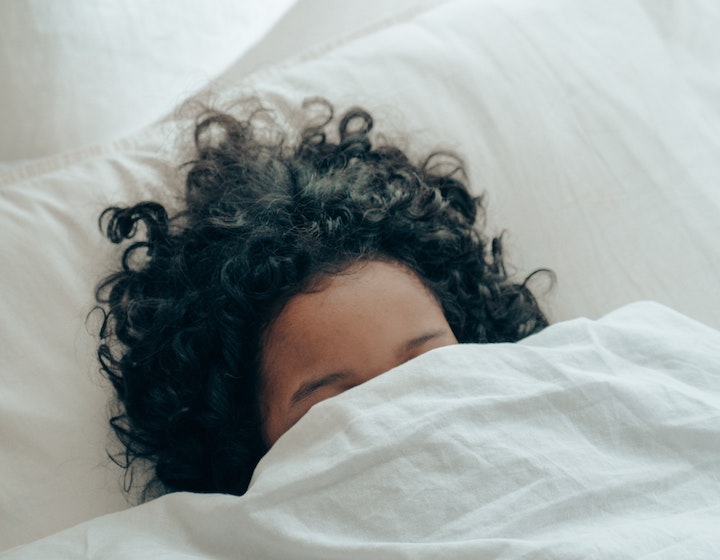
What Happens When Kids Don’t Get Enough Sleep?
The US Centres for Disease Control and Prevention deems insufficient sleep a looming public health hazard. In short, sleep deprivation makes people more susceptible to diseases such as Alzheimer’s, obesity, diabetes and depression, whilst further raising the risk of certain cancers. When it comes to the younger generation, a lack of sleep (even if it’s just an hour less of sleep every other night) makes kids slow, whiny and unable to focus.
If you’re letting screen time get in the way of your little fellow logging a sufficient number of winks per night, this should be your wake-up call.
Can Make Kids Gain Weight
If your child doesn’t get enough sleep, the hormones which signal the feeling of fullness and hunger become confused. As a result, kids mistakenly demand food when they just need to be soothed. Plus, the stress hormone (cortisol) gets pumped, bringing a host of trashy side effects, like causing skin breakouts in teens, wrecking the body’s natural immunity, and making children prone to illnesses and weight gain.
If that wasn’t enough, a tired body makes the metabolism go bonkers and kids worn out. They’re more likely to be fatigued in the playground and on playdates.
Read More: 3 Ways To Help Your Child With Everyday Anxiety
Can Cause Bad Mood And Irritation
Restlessness from lack of sleep can make kids feel fidgety and can cause a lack of focus (which in turn affects their school life and academics) and can also cause kids to act impulsively (which can even cause accidents).
Affects The Immune System
Your child’s terrible recurring cold might just be fixed by a good night’s sleep. A lack of shut-eye pounds the immune system pretty badly. When we sleep, our bodies produce proteins (known as cytokines) which fight illness and stress. Lose the winks and the number of cytokines your body produces takes a dip, lowering the immunity and making your child more prone to germs and infections.
Read More: Raising A Child With An Immune Deficiency
So How Much Sleep Do Children Need?
The amount of sleep your child needs (including naps) varies depending on their age:
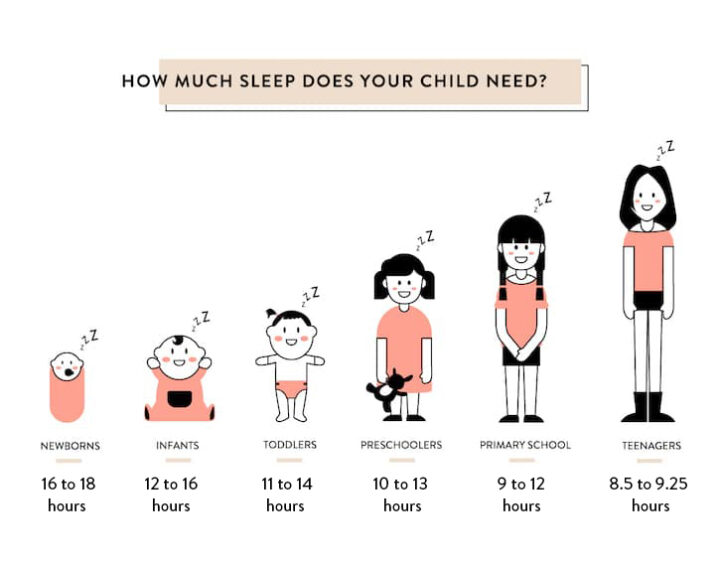
Also, note that babies born prematurely will be sleeping 90 percent of the time and this is nothing to worry about. The exact amount that a preterm newborn will sleep may depend on how early they were born and their overall health.
While this recommendation comes from the American Academy of Sleep Medicine, don’t break a sweat if there’s sleeplessness in Toddlerville. Every child is different — there are sound sleepers and light sleepers — but as long as your cherub falls in the bell curve, there’s no reason to worry.
Read More: 8 Tips To Help Babies And Toddlers Overcome Jet Lag
How Sleep Affects Teens Emotionally and Physically
If lack of sleep was only about daytime grogginess, then it wouldn’t be a biggie. But lack of zzzs can have a direct impact on your kid’s report card, dulling mental sharpness, creativity and analytical thinking.
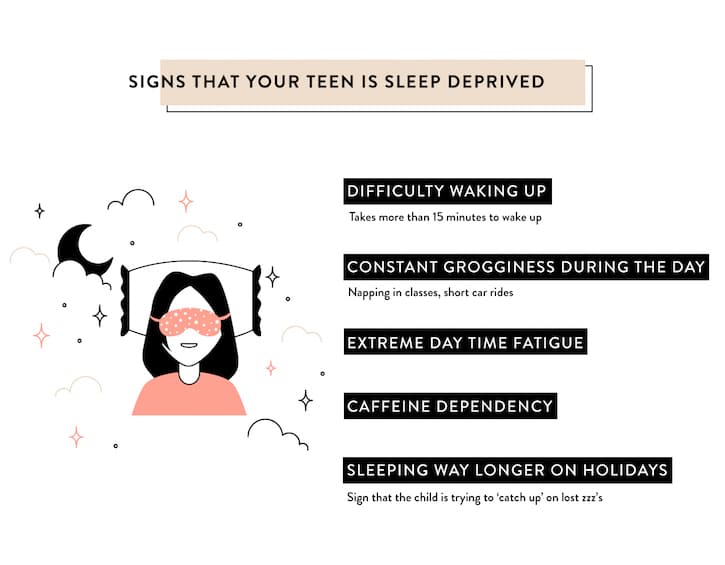
Academia aside, sleep is the most critical component of a teen’s mental development. According to a study published in the Journal of Youth and Adolescence, each hour of lost sleep is linked with a 38 percent increased risk of feeling hopeless and sad. Teenagers who get only six hours per night are three times more likely to be clinically depressed than their well-rested peers. Startling, isn’t it?
Read More: Mental Health For Kids – How To Start The Conversation
Tips To Help Kids Sleep
If you find bedtime to be a constant struggle, don’t worry, you’re not alone. There are a ton of parenting books specialising in getting kids to sleep. We also turned to parenting expert Mary Mountstephen for more expert advice.
 Set A Routine
Set A Routine
Bedtimes need structure, routine and clear expectations. This means developing routines that don’t involve you as a parent when your child has gone to bed.
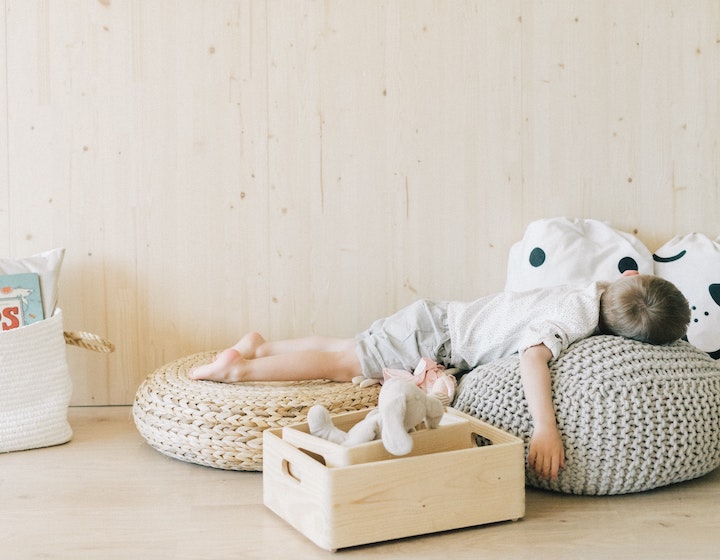
 Remove Distractions
Remove Distractions
Make sure to keep the bedroom a quiet place and remove any distracting stimulation. When sleeping is an issue, it helps if there is a clear message that a bedroom is for sleeping in and nothing else. Take out the toys, bin the bright duvet and hide the technology for starters. For more advice on this issue, head to The Happy Sleeper.
 Make The Bedroom As Comfortable To Sleep In As Possible
Make The Bedroom As Comfortable To Sleep In As Possible
The optimal bedtime for children aged 2 to 6 is between 7pm and 8pm, but we know that this can be difficult to fit in with family routines and lifestyles. As such, try to make the bedroom as conducive to sleep as possible. Make sure the room is cool (16-18 degrees), quiet and with low light. It also helps to ensure the bed has soft and light bed linen.
Read More: Where To Buy Bedding In Hong Kong – Bed Sheets, Bed Linen, Duvet Covers & More
 No More “You’re Grounded, Go To Your Room”
No More “You’re Grounded, Go To Your Room”
The bedroom is not a “naughty area”. Never use the bedroom as a place to go when your child has behaved badly. This sends negative messages about the room. The bedroom needs to be a single-function place for young children; a place of very low stimulation that is safe and encourages sleep.
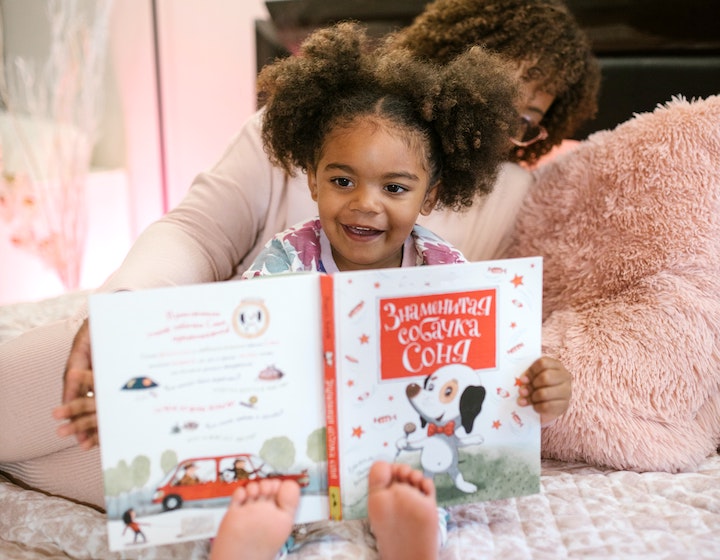
 Have a Pre-Sleep Activity
Have a Pre-Sleep Activity
Wind down for about 40 minutes before going to bed and have a calm pre-sleep activity that is the same every night, such as reading a story together. This means a real storybook, not a screen!
Read More: Team Sassy Mama Picks Its Favourite Books For Kids Of All Ages
 Keep A Sleep Diary
Keep A Sleep Diary
If you’re having trouble staying on track with your kid’s sleep, keep a sleep diary as this can help identify patterns.
 Have Everyone Involved
Have Everyone Involved
Finally, make sure everyone involved (including helpers, other caretakers and even older siblings) know the routine and stick to it.
At the end of the day, ensuring your child gets a good night’s sleep is easier said than done, so don’t worry. Up to 30 percent of children experience a sleep problem at some point during their childhood! A successful routine may take a few days, or even weeks, to master, but hang in there — having a happy sleeper will all be worth it!
Read More: Going Back To Work After Having A Baby – 6 Tips From A Hong Kong Mum
Editor’s Note: “Kids’ Sleep: How Much Sleep Children Need And Why” was originally published by Nikita Mishra and most recently updated in April 2023 by Fashila Kanakka. Special thanks to Gemma Fisk of The Sleep Coach for her expert advice.
 View All
View All











 View All
View All





 View All
View All


 View All
View All















